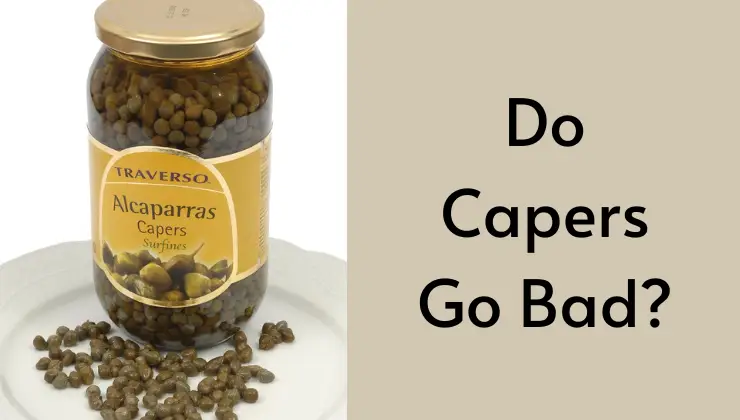Do capers go bad? This query may sound innocuous but resonates deeply with culinary aficionados who regularly rely on these tiny, tangy wonders to elevate their dishes.
Capers are not just another ingredient; they are a cornerstone of Mediterranean and Middle Eastern cuisine, adding zest and complexity to an array of dishes.
Their contribution is not just culinary; they also come with health benefits, including a dose of antioxidants and vitamins.
But how long can you rely on a jar of capers to keep its vibrant quality? We explore this question in depth in this comprehensive guide.
❤️ Protect your health with organic caper and fresh caper oil!
Do Capers Go Bad?
Yes, capers can go bad, but understanding their shelf life is far from simple. Preserved in brine or salt, capers have the benefit of a natural preservative that prolongs their freshness. The salty or acidic environment in which they are stored inhibits the growth of spoilage organisms and pathogens, contributing to their impressive longevity. However, the durable nature of capers is not a carte blanche to ignore their shelf life. The quality and safety of capers can degrade over time, depending on several factors such as the integrity of the jar’s seal, storage conditions, and even the quality of capers at the time of their pickling.
Understanding the nuances of the capers’ shelf life can also have broader implications for both food waste and sustainability. Many households often discard food items that are past their “best by” date, believing that they are no longer good to consume. By learning how to properly assess the quality and safety of preserved items like capers, consumers can make more informed decisions, reducing unnecessary food waste.
This not only saves money but also contributes to environmental sustainability. In an age where food waste is becoming an increasingly critical issue, being educated on the true shelf life of food items is more crucial than ever.
Moreover, for the culinary enthusiast, knowing the intricacies of capers’ shelf life can have a notable impact on the quality of dishes. Capers are often used to elevate the flavor profile of a variety of recipes—from salads and pasta to fish and chicken dishes.
Their unique tanginess and briny notes can transform a dish from ordinary to extraordinary. However, using capers that have started to degrade in quality can have the opposite effect, introducing off flavors that could ruin a dish. Therefore, not only does understanding the shelf life of capers contribute to food safety and waste reduction, but it can also be a determining factor in the success of your culinary endeavors.
👉 If you think your caper is going bad, you can buy a new one here.
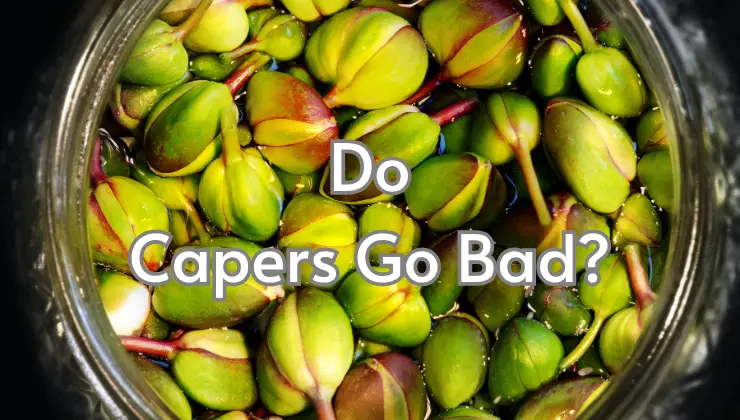
Can Opened Capers Go Bad?
Breaking the seal of a capers jar does impact its shelf life. While an unopened jar benefits fully from its preserving medium, an opened jar is susceptible to external factors such as bacteria and air exposure. Despite these factors, with proper storage methods, you can extend the life of an opened jar for up to six months, or even a year.
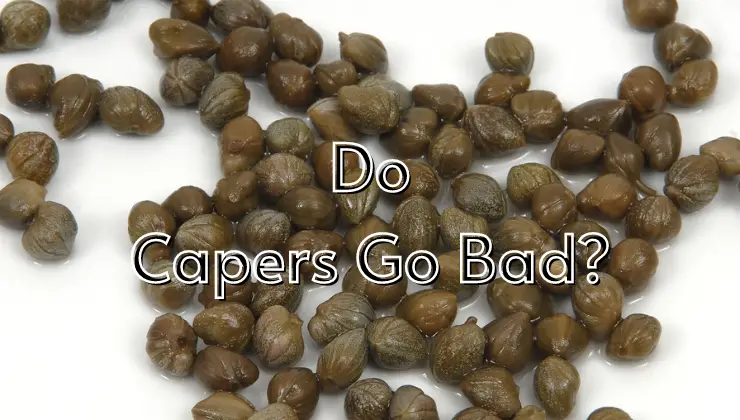
Can Unopened Capers Go Bad?
An unopened jar of capers can last a surprising amount of time often up to three years if stored in a cool, dark, and dry place. However, the exact time frame may vary depending on the brand, preservation medium, and storage conditions.
Shelf Life of Capers
The shelf life of capers is a topic of interest that’s essential for anyone who enjoys cooking or simply loves the burst of flavor that these small flower buds bring to a variety of dishes.
The shelf life of capers can vary widely, depending on several key factors, such as the preservation method, storage conditions, and whether or not the jar has been opened. Generally speaking, capers are quite durable, thanks to the preservation process they undergo.
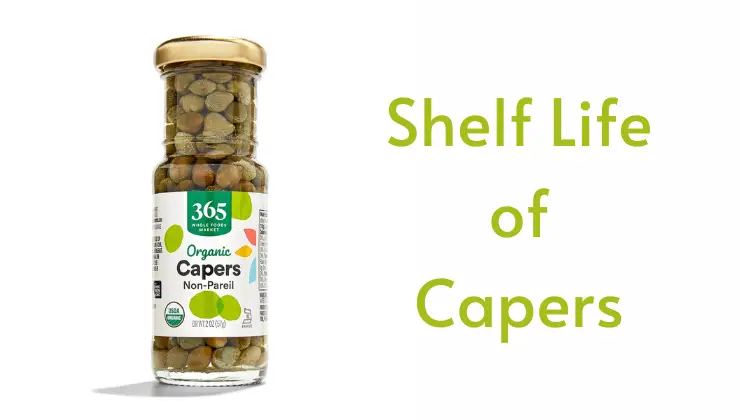
Shelf Life of Unopened Capers
An unopened jar of capers has a remarkably long shelf life—often up to three years when stored properly. The jar should be kept in a cool, dark, and dry place, such as a pantry.
However, the “best by” or “use by” date on the packaging is a good guideline to follow for optimal flavor and texture.
Keep in mind that these dates are often conservative estimates and the capers might still be good to use for a period after that date, though their quality may diminish.
Shelf Life of Opened Capers
As soon as you crack open that jar, the longevity of your capers changes. The opened jar is now susceptible to contamination, moisture, and air, all of which can accelerate spoilage. However, if you store the opened jar in the refrigerator and use clean, dry utensils to handle the capers, they can last anywhere from six months up to a year.
Refrigeration is key because the cold temperature slows down the growth of spoilage organisms. Some experts even recommend pouring a layer of olive oil on top of the capers to serve as an additional barrier against air exposure, though this is optional.
Factors Affecting Capers Shelf Life
The most crucial factors affecting the shelf life of capers are the integrity of the jar’s seal, the quality of the capers at the time of their preservation, and the storage conditions. An unbroken seal, high-quality capers, and cool, dark storage conditions will maximize the shelf life of your capers.
Does Capers Expire?
Capers, those delightful little flower buds renowned for their burst of tangy and briny flavors, often provoke questions regarding their longevity. You may find yourself wondering, “Do capers expire?” The short answer is yes, but the lifespan of capers can be quite extended, provided they are stored correctly. Here’s a comprehensive look at what you need to know.
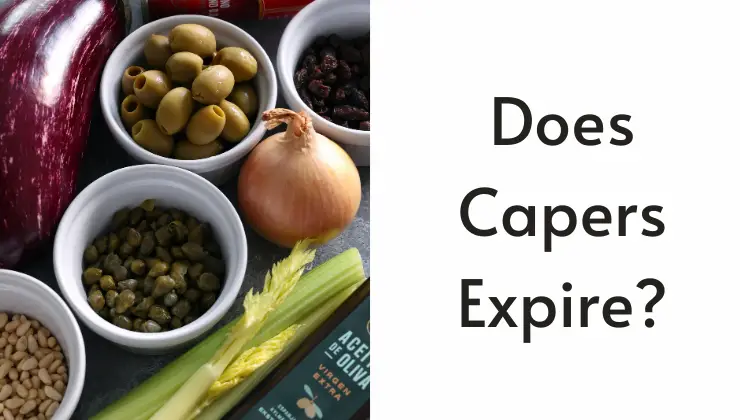
Is Capers Safe After Expiration? A Risky Bet
The “best by” or “use by” date provided on a jar of capers is a general guideline for when the product will remain at peak quality. While some foods might be safely consumed past their expiration date, it’s risky to do so with capers, especially if they show any signs of spoilage.
Even without visible symptoms, the effectiveness of the preservatives will diminish over time, increasing the potential for bacteria or mold growth that could make you sick.
Signs of Expired Capers: When to Say Goodbye
Capers are typically sold in jars filled with brine, vinegar, or salt, acting as preservatives that give them a lengthy shelf life. However, even these natural preservatives can’t keep capers fresh indefinitely.
Signs of spoilage include changes in the color or texture, a foul or off smell emanating from the jar, and the presence of mold. If you notice any of these signs, it’s best to dispose of the capers immediately to avoid any potential foodborne illnesses.
Another indicator is if the brine or vinegar in which the capers are stored becomes cloudy or discolored; this also suggests that it’s time to part ways.
Using Old Capers: Proceed with Caution
If your capers are past their “best by” date but show no signs of spoilage, you might consider using them—but exercise caution. Taste a tiny amount first to check for off flavors. If the taste is not what you remember, it’s better to dispose of the capers.
Using compromised capers in your cooking can introduce unwanted flavors into your dishes and potentially pose a health risk.
Remember that the main roles of capers are to add flavor and complexity to dishes, and old or spoiled capers will not only fail in these tasks but may also introduce risks to your health.
Do Capers Go Bad FAQ
Do Capers Go Bad?
Yes, capers can go bad over time, especially if they have been improperly stored or if the jar’s seal has been compromised. Check for signs like mold, off smell, or discoloration in the brine to determine if your capers have gone bad.
How Long Do Unopened Capers Last?
Unopened capers, when stored in a cool, dark place like a pantry, can last up to 2-3 years. Always check the “best by” or “use by” date on the jar for a more accurate timeline.
How Long Do Opened Capers Last?
Once opened, capers need to be refrigerated and can last between six months to a year. Make sure the capers remain submerged in their brining or salting liquid to maximize their shelf life.
Can Capers Be Frozen?
Yes, you can freeze capers, but it may affect their texture. Use a vacuum-sealed bag or an airtight container to minimize freezer burn. Frozen capers should be used within 6-12 months for best quality.
What Are the Signs of Spoiled Capers?
Look for changes in color, a foul smell, or the presence of mold. If the brine becomes cloudy or discolored, that’s also a sign that the capers have spoiled.
How Do I Store Capers After Opening?
After opening, reseal the jar tightly and store it in the refrigerator. Make sure the capers are submerged in the brine to maintain their quality.
Is It Safe to Eat Capers Past the Expiration Date?
It’s not recommended to consume capers past their “best by” date, especially if they show any signs of spoilage like mold, off smell, or a change in brine color.
Can Old Capers Make You Sick?
While consuming slightly past-date capers that show no sign of spoilage might not immediately make you sick, there’s a risk of foodborne illness from spoiled capers. Always prioritize safety by adhering to storage guidelines and checking for signs of spoilage.
Do Capers Need to Be Refrigerated?
Unopened capers do not need to be refrigerated and can be stored in a cool, dark place. However, once opened, they should be refrigerated to maintain their quality.
Can I Use Capers That Have Changed Color but Smell Fine?
A change in color usually indicates that the capers have begun to spoil. It’s best not to consume them even if the smell seems fine.
You may also enjoy learning about 👇🏻👇🏻👇🏻
👉🏻 Can Pasta Go Bad?

